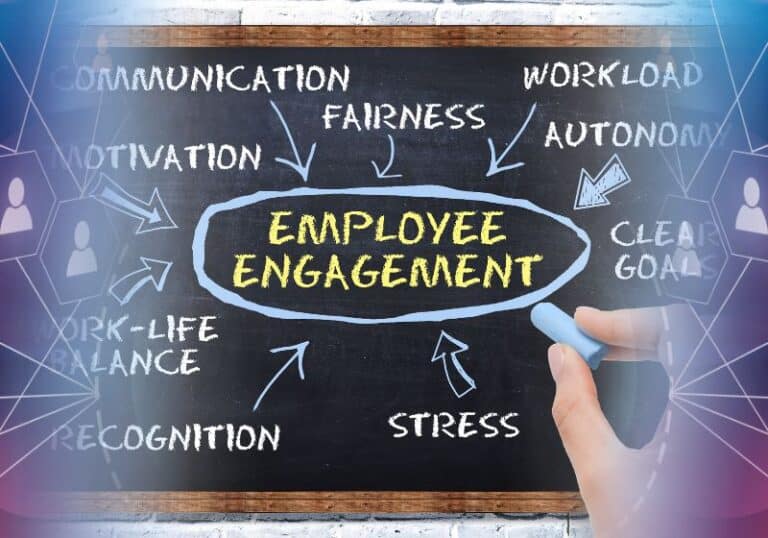Staff Management
Performance issues are one of the most common, and most misunderstood, areas of people management. Many employers do the right thing by having informal conversations, offering support, and giving employees time to improve. But when things don’t change, a difficult question often follows: can we move to dismissal if there’s been no formal warning? We’re asked this regularly, particularly by employers who feel they’ve been fair, reasonable, and patient but are unsure whether their approach would stand up to scrutiny…
One of the most common conversations we have with employers at HR:4UK starts with a simple sentence: “We’re not sure which process we should be following.” and our response usually starts with a simple but important question: is this a case of won’t, or can’t? Behind that question usually sits uncertainty about whether an issue is one of performance, capability or conduct. Performance isn’t where it should be, attendance is patchy, or mistakes are creeping in (or becoming more frequent),…
Managers rarely set out to create risk. In most cases, they are trying to be fair, reasonable and supportive while keeping the business moving forward. Yet one of the most common causes of employment law risk we see is not bad intent, but a gap between confidence and competence in people management. This “confidence gap” is increasingly exposing employers to issues around performance management, capability, conduct and fairness — often without anyone realising there is a problem until it is…
At HR:4UK, we know that keeping up with employment law changes can be a challenge, particularly when the updates are made quietly and without much fanfare. One such change, announced towards the end of last year, will significantly affect how long employment disputes take to move through the system. From 1st December 2025, the Government will double the length of the ACAS Early Conciliation period from six to twelve weeks. I sat down with Izzy an HR Consultant to talk…
As a small business owner, dealing with disciplinary hearings can feel overwhelming. The worry about saying the wrong thing, missing a procedural step, or inadvertently creating employment law risk is very real, particularly when you don’t have an internal HR department to rely on. This is why many employers seek HR support for small businesses when managing disciplinary and grievance procedures. At HR:4UK, we regularly help businesses by providing scripted disciplinary hearings as part of our wider HR consultancy support.…
Informal management is one of the biggest, and least recognised, employment law risks facing employers right now. January is often when business owners pause, reflect and look ahead. With a new year comes renewed focus, but it also brings unresolved people issues back into view. Performance concerns that were quietly tolerated before Christmas, awkward conversations that felt easier to avoid (especially before Christmas, with the sensitive manager in us not wanting to “spoil” Christmas), and long-standing situations managed “by instinct”…
Christmas is just around the corner, and with it comes the annual question that pops up in every employer’s mind: How can I treat my team without landing myself on HMRC’s naughty list? Recently, our advice team has been unwrapping plenty of queries about Christmas gifts, bonuses and those mysterious “trivial benefits” rules that seem anything but trivial when you’re trying to stay compliant. To help untangle the tinsel, I’m joined today by Ella, one of our brilliant HR consultants,…
Miscarriage is one of those subjects that people instinctively shy away from. It’s deeply personal, emotionally complex, and surrounded by uncertainty about what’s “appropriate” to say or do. Yet miscarriage is far more common than most realise. According to the NHS, one in eight pregnancies end in miscarriage, often before a person even knows they’re pregnant. Despite this, it remains one of the last taboos in the modern workplace. Behind those statistics are colleagues, managers, and business owners quietly carrying…
Imagine an employee comes to you and says they think they might be dyslexic, autistic or have ADHD but they don’t yet have a diagnosis or perhaps you suspect that they are neurodivergent based on their behaviours. Do you wait for official confirmation before stepping in, or should you act straight away? It’s a dilemma many employers face and one that could have serious legal and practical consequences if handled incorrectly. To explore this question in more detail, I sat…
Each year, on 18 October, World Menopause Day raises awareness of a subject that touches half the population but is still too often ignored at work. Thankfully, the silence that once surrounded menopause is being broken, with more people speaking out and encouraging open conversations. Yet, in the workplace, many employees still feel they cannot discuss their symptoms with colleagues or managers, and too many employers remain unsure about what they should be doing to provide support. At HR:4UK, we…
If you’re feeling the strain of sickness absence, mental health pressures, alongside tighter budgets, I can assure you that you’re not alone! I’m seeing the same pattern across so many of the businesses we support. The labour market may be cooling, but long-term sickness remains stubbornly high and is proving extremely costly for employers. Sickness Absence: A Growing Challenge So many of the calls coming into our team at the moment are about sickness absence. Whether it’s short-term absence or…
If you run a small business, you’ll know that every single person counts. You don’t have the luxury of multiple departments or a spare hand to step in when someone is off. When an employee calls in sick, it’s more than just an inconvenience — it can throw the whole week off balance. But when that sickness turns into a long-term absence, the pressure multiplies. You are trying to keep the business running, keep the rest of the team motivated,…
Uncovering the Hidden Factors Behind Performance Concerns Over the past year, we have seen an increasing number of situations where what begins as a performance concern turns out to be something very different. A manager calls because an employee is missing deadlines, losing focus, or struggling to follow through on tasks. Conversations are held — sometimes informally over a coffee, sometimes formally during a disciplinary meeting — and at some point, the employee explains that they have ADHD, usually as…
As business owners, we all understand the importance of hiring the right people. A strong hire can drive your business forward, contribute positively to your culture, and even spark innovation. But what happens when recruitment goes wrong? Speaking from experience, we’ve got it wrong many times and learned some tough lessons along the way. However, as our business has grown, we’ve refined our approach and, more recently, absolutely nailed it with the right people coming on board. It makes all…
Banter. It’s something most small teams rely on to build rapport, lift morale, and keep things light. In many workplaces, it’s a sign of close-knit culture. But what happens when the jokes go too far? When does “just having a laugh” cross the line – and what responsibility do you, as an employer, have to step in? As an HR consultant who’s worked with SMEs for over 30 years, I can tell you this: the biggest risk with banter isn’t…
We’ve had quite a few employers reach out recently feeling a little blindsided when an employee suddenly asks for a pay rise. It’s one of those moments that can make business owners feel cornered – especially when it’s not budgeted for, or the way it’s raised feels more like a threat than a discussion. One recent caller told us that they dismissed an employee because asking for a pay rise didn’t align with their company values. That might sound extreme,…
Headlines were recently buzzing—not about match points or Grand Slam glory, but about an awkward moment courtside at the Rouen Open in France. During a changeover in the second set, a professional tennis player was overheard asking the umpire to request that her opponent put on deodorant, stating she “smells really bad.” The comment sparked a media storm, social media debates, and more than a few uncomfortable laughs over breakfast. The professional tennis player has since apologised for the remark,…
The start of a new year is a perfect opportunity for business owners to re-energise their teams. Set clear goals, and create a workplace culture that drives engagement and productivity. As we step into 2025, for many businesses it is the start of their new financial year, a great opportunity to push the re-set button to boost employee engagement. As well as aligning your workforce with your company’s mission and values. Before setting goals for the year, it is important…
















